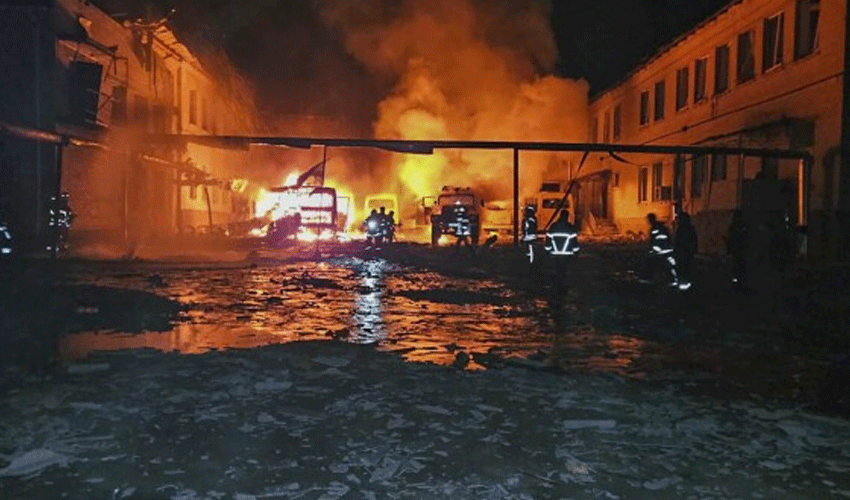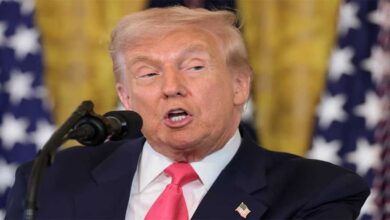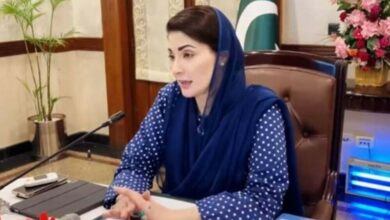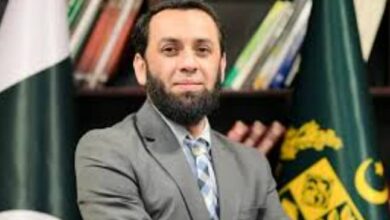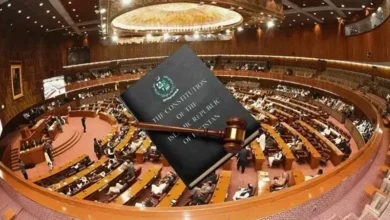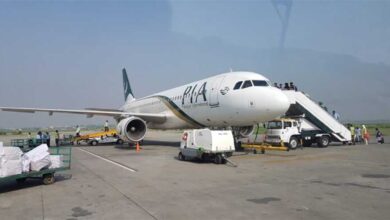Ukraine on Monday reported a series of Russian drone attacks across multiple regions, mere hours after a 30-hour ceasefire declared by Russian President Vladimir Putin came to an end.
According to Ukraine’s air force, air raid sirens were sounded across several regions including Kyiv, Kherson, Dnipropetrovsk, Cherkasy, Mykolaiv, and Zaporizhzhia.
In the southern city of Mykolaiv, Mayor Oleksandr Senkevych confirmed that explosions were heard, though there was no immediate confirmation of casualties.
The brief truce, which began at 6pm Moscow time (1500 GMT) on Saturday and ended at midnight Sunday (2100 GMT), was described by the Kremlin as a humanitarian pause in observance of Orthodox Easter. However, both Kyiv and Moscow have accused each other of violating the ceasefire throughout its duration.
Ukrainian President Volodymyr Zelenskyy, citing a report by military chief Oleksandr Syrskii, claimed Russian forces had violated the truce more than 2,000 times since Sunday morning.
“There had been no missile strikes that day, but Russia must go beyond PR optics and abandon drone and missile strikes on civilian infrastructure for at least 30 days,” Zelenskyy said.
Meanwhile, Russia’s Ministry of Defence alleged that Ukrainian forces fired on Russian positions 444 times and launched over 900 drone attacks during the truce. It claimed Ukrainian strikes had resulted in civilian casualties and damage in the Russian border regions of Bryansk, Kursk and Belgorod.
Tensions remained high as residents in Ukrainian cities voiced skepticism over the sincerity of the ceasefire. “Missiles and drones flew over as soon as the truce began,” said Natalia Malaieva, a Kyiv resident. “There were explosions caused by missiles. What kind of a ceasefire is that?”
Another local, Olha Malashuk, echoed doubts about Moscow’s intentions: “He [Putin] probably wants to rearm the troops. That’s why no one believes him anymore.”
Ukrainian military spokesperson Viktor Trehubov acknowledged a relative reduction in front-line activity, but said fighting never fully ceased. “To be honest, we didn’t hold out much hope that this would actually happen,” he said on national television.
The 30-hour truce, if honoured, would have marked the most significant pause in hostilities since Russia launched its full-scale invasion of Ukraine on 24 February 2022. The conflict has since left hundreds of thousands dead or wounded, with Russia continuing to control roughly 20 per cent of Ukrainian territory, including the annexed Crimean peninsula.
Putin’s surprise order on Saturday to halt military activity “along the entire line of contact” was interpreted by some analysts as a tactical move aimed at improving Moscow’s diplomatic positioning. Kremlin spokesperson Dmitry Peskov, however, confirmed on Sunday that the truce would not be extended.
The United States, which supported the temporary ceasefire, expressed disappointment at the decision not to prolong it. Former US President Donald Trump, speaking on Sunday evening, said he hoped both sides could “make a deal this week”, though he did not elaborate.
Reporting from Moscow, Al Jazeera’s Yulia Shapovalova noted that while skirmishes continued, the battlefield had seen a noticeable decline in intensity. “Analysts say Russia is likely in a favourable position for future negotiations, given recent battlefield gains and Western pressure for a diplomatic resolution,” she said.



